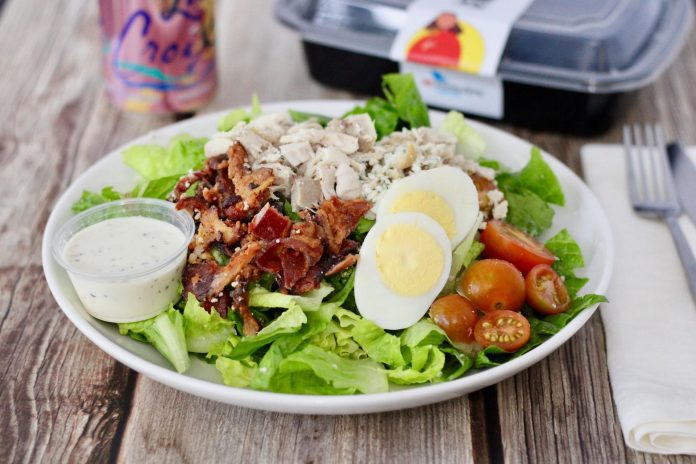If you have one goal at the gym, and that is to gain muscle, your diet should be one of the most important elements of your focus. And don’t think boosting your calories is all you need to do throughout the day! Every portion should be carefully considered, especially the meal you take before you hit the gym. Your meals should be designed to give your body the energy to push yourself to your limits and allow easy and effective recovery when you get home.
According to research and consultations with gym experts, your pre-workout meal will give you all the right nutrients to fuel your workouts. When building muscle, you know that every rep counts, and there are countless exercises and techniques that will help you get one more rep in. And no matter which one you choose, the way you perform those reps will greatly depend on your energy levels. So here’s how to fuel your body before a workout so you can maximize your muscle gain and minimize any issues with recovery:
Table of Contents
Load up on carbs
Here’s some good news: carbs are great for consuming before your workout. Of course, they are not essential for building muscle, but they do play a serious role in keeping your energy high throughout the workout, allowing you to push hard during even the most grueling session. Also, carbs help recovery, helping you with pain and recharging.
The amount of carbs you need to eat during your pre-workout meal depends on many things: your goals for working out, your body weight, your age, etc. In most cases, the standard recommendation for carb intake before a workout is between 25 and 40% of your daily carbohydrate intake. This varies from case to case, but if you want to build muscle without gaining weight, the majority of your carb consumption should be focused on your workout—your pre-workout and post-workout meal. If you’re just a beginner and want to keep your diet simple, follow a 3-to-1 ratio of carbs to protein, and eat your meal one hour before you hit the gym. According to experts, this way of eating elevates your insulin and blood glucose levels right after you finish your exercise.
Take your pre-workout
Don’t avoid taking pre-workout if you’re serious about your progress in the gym. Pre-workout substances are designed to boost your workouts and allow you to increase your lifts. When looking for the best pre-workout for gym sessions, make sure to do your research and buy only from legit sources. Also, if you have any health concerns, read the label thoroughly and consult with your doctor if you see anything that alarms you.

Don’t neglect protein
Experts and workout enthusiasts often claim that carbs are the most essential ingredient to look for in a pre-workout meal, but protein shouldn’t be neglected either. According to some research, after a high-protein meal, people experience even greater lipolysis and plasma fat availability than after a high-carb meal.
During your eating window before a workout, choose protein sources that are full of fast-digesting nutrients (between 20 and 30 grams)—think whey protein, egg whites, chicken, ground turkey, tuna, etc. When opting for animal protein, it’s necessary to be patient with your gym timing because animal proteins are harder to digest, often interfering with your workout. Something easy to digest, like a shake, will have you ready to hit the weights in 30 to 60 minutes.
Minimize fat
If you’re trying to bulk up, fats will have to find their way to your plate, however, they should be used carefully in any pre-workout meal. Fats limit the rate at which the food leaves your stomach (AKA gastric emptying) which reduces the ability to absorb nutrients. And without the ability to absorb nutrients, there’s no use in taking even the best workout foods for muscle gain in the world.
Time your meal
It’s crucial to eat your meal between 30 and 90 minutes before your workout. This way, your meal will provide you with all the necessary fuel for your muscles and organs to push you through the stress. Also, your body won’t be forced to burn muscles for food. If you have a sensitive stomach, it’s even more important to time your meal properly because you don’t want to hit the weights feeling bloated and full. Those with sensitive stomachs should wait longer, especially after a bigger meal.
Whether you’re a casual gym-goer or someone very serious about your fitness, a good pre-workout meal routine will help you achieve your goals, no matter if they are big or small.














